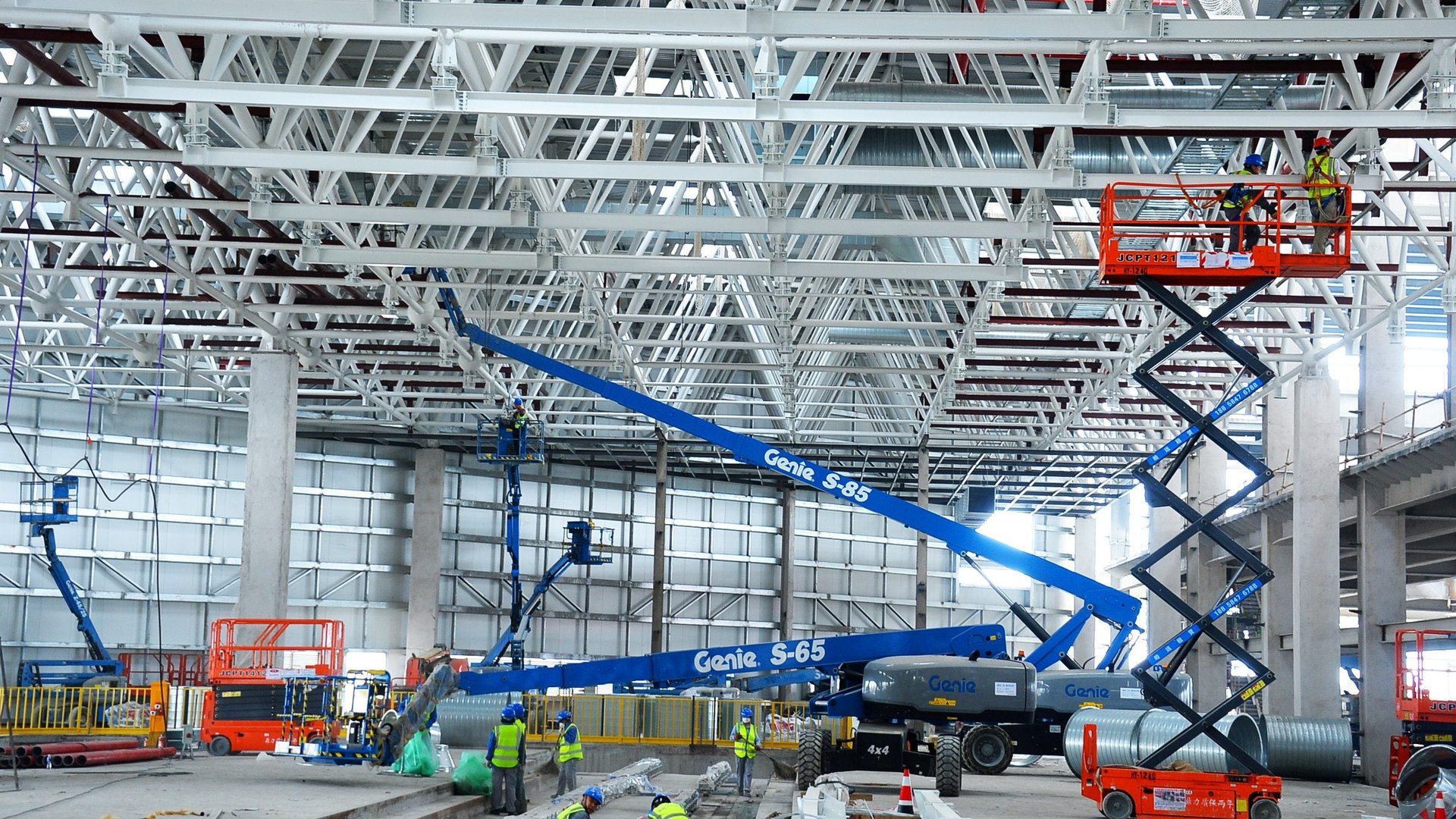The first made-in-China Tesla could arrive in November
Elon Musk has never been good at managing expectations. But Tesla’s Gigafactory in Shanghai could be an exception.


Elon Musk has never been good at managing expectations. But Tesla’s Gigafactory in Shanghai could be an exception.
Last week, Morgan Stanley’s research team, recently in China, said the Shanghai factory should start production in November. The bank expects Tesla to sell 35,000 to 40,000 Model 3 in China next year. That would be in line with Musk’s production schedule when he broke the ground of the Shanghai Gigafactory in January. In today’s (July 24 PST) second-quarter earnings call, Musk said he expects the demand for made-in-China Model 3s to reach 5,000 vehicles a week in the longer term.
Tesla delivered record sales in the second quarter—95,356 deliveries, or 4,356 more units than the last quarter, but the company still posted a $408 million loss. It’s battling to squeeze margins from its popular vehicles. The latest numbers underscore the importance to the California carmaker of churning out vehicles fast, and more cheaply, in China, the firm’s biggest revenue generator.
Caught up in the China-US trade war last year, Tesla’s revenue dropped 13% from 2017 to $1.8 billion in 2018 after its car prices see-sawed in China. At one point, Chinese customs held 1,600 Model 3s briefly in the Shanghai border in March. Having a local factory could help minimize the fallout from trade tensions—and it’s a goal the Chinese government appears to be behind. Beijing last year scrapped a two-decade-old foreign investment limits policy enabling Tesla to set up the wholly-owned Shanghai factory.
Tesla’s been pretty good at sticking to its timeline in China so far. It’s only been seven months since construction started in Shanghai. Workers on the scene say construction work goes on around-the-clock. The Shanghai factory is 6% of the land size of Nevada’s Gigafactory, which started construction in 2014 and is only about 30% complete.
Musk said earlier this year he expects the Shanghai factory to produce the Model 3 “in high volume” next year. Local news outlet Knews reported Friday (July 19) that Tesla has dispatched 30 foreign employees to work with a 140-member team in the Shanghai factory.
The Shanghai factory will focus on the Model 3 and Model Y, a compact crossover utility vehicle. Tesla has set a starting price of 328,000 yuan ($48,000, some links in Chinese) for the cheapest version of the made-in-China Model 3, or around 40% of the starting price of a Model S in China. The made-in-China Model Y will come later, in 2021. Tesla currently imports all the cars it sells in the country.
To manage cost, Tesla is seeking to partner with battery makers other than Japan’s Panasonic for fully localized models in China, according to the note from Morgan Stanley. The bank didn’t say it’s likely Tesla will use batteries from China’s Tianjin-based state-owned Lishen, and Korean’s LG Chem from 2020 onwards. Neither Panasonic or Tesla respond to comment requests on the partnerships.
Musk’s expectation of eventually ramping up delivery to 5,000 cars a week is in line with Morgan Stanley’s longer-term forecast that Tesla’s China sales will peak at 254,000 units per year by 2024, or half of the Shanghai Gigafactory’s annual capacity when completed in the next few years. The factory won’t be delivering cars to Europe, he added.
Tesla’s Model 3 and Model Y will be competing with a range of Chinese electric cars at similar prices. When it gets those products ready next year, it will end up with only a niche market if it continues focusing on the premium branding position, said John Zeng, a Shanghai-based analyst for consulting firm LMC Automotive.